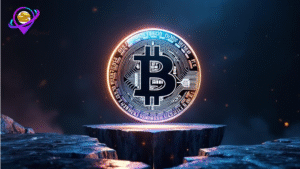Market Dominance and Current Price Action
Chainlink continues to maintain its position as the leading decentralized oracle network with a commanding 63.04% market share. The platform serves as critical infrastructure that enables smart contracts to securely access real-world data, bridging blockchain ecosystems with external information sources. This functionality makes it indispensable for decentralized finance applications, prediction markets, and insurance protocols that depend on accurate, tamper-proof data feeds.
Currently, LINK’s price is trading around $18, still below the key psychological barrier of $30. The token faced a significant test last Friday when it dropped about 10% during a broader market liquidation event that wiped out over $19 billion in leveraged crypto positions. From a technical standpoint, the $20 to $23 range represents a crucial resistance zone that traders are watching closely. If the price can break and hold above this level, it might signal a potential buying opportunity.
Technical Indicators and Market Sentiment
The relative strength index sits at approximately 50, suggesting the market is in a balanced state with potential for upward movement. On the derivatives side, trading volume has increased to $2.31 billion, representing an 11.18% rise, while open interest has seen a slight decrease of 1.89% to $700.89 million. Some analysts remain optimistic about LINK’s prospects, with one suggesting the token remains in a “buy zone” before a potential rally to $100.
Recent Integrations and Security Milestones
Chainlink’s team recently confirmed 14 new integrations across 11 different blockchain networks including Aptos, Arbitrum, Base, Ethereum, and Solana. The network is being adopted by various projects such as Airlinez Game, EnTravelX, Jovay Network, and several others. One notable integration involves streaming official U.S. Department of Commerce statistics on-chain through BNB Chain.
These growing integrations come alongside significant security achievements. Chainlink has obtained ISO 27001 certification and SOC 2 Type 1 attestation, demonstrating the network’s commitment to information security management and risk control. These certifications provide formal assurance that Chainlink has systems in place to protect sensitive information and ensure data confidentiality, integrity, and availability.
Real-World Asset Tokenization Potential
Chainlink’s role in real-world asset tokenization represents another significant growth opportunity. According to the Boston Consulting Group, tokenization could unlock approximately $16 trillion in illiquid assets by 2030, representing about 10% of global GDP. The World Economic Forum offers an even more ambitious projection, suggesting tokenization might eventually encompass $867 trillion in financial assets.
The network is already establishing partnerships with major financial institutions including SWIFT, Euroclear, J.P. Morgan, Fidelity International, UBS, and ANZ Bank. These collaborations, combined with existing integrations with DeFi protocols like Aave, GMX, Lido, and Compound, strengthen the case for Chainlink’s continued relevance and potential growth in both traditional finance and decentralized applications.
As institutional adoption increases and real-world integrations expand, the fundamental case for Chainlink appears to be strengthening, though market conditions and technical resistance levels will likely continue to influence short-term price movements.






